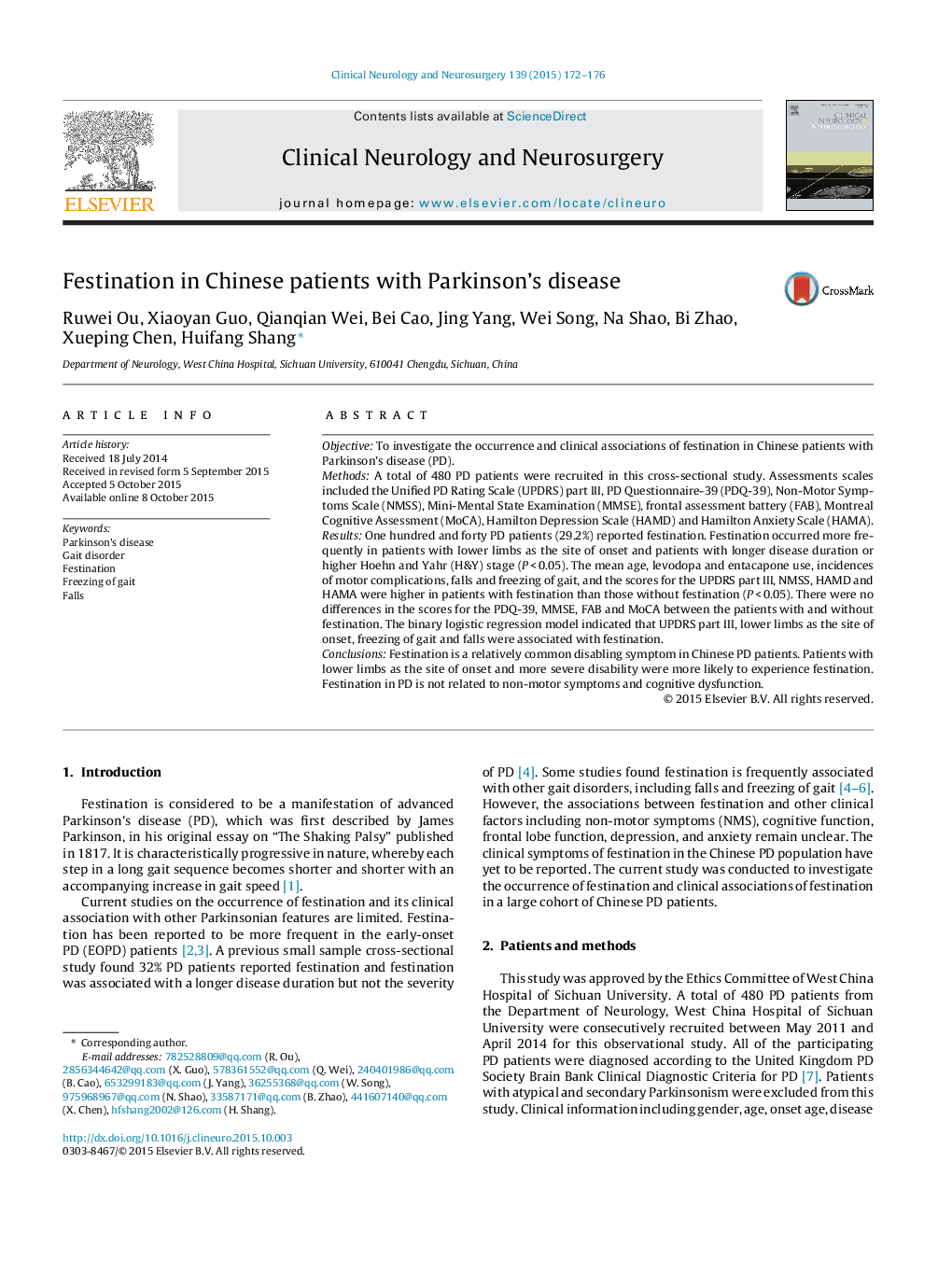| Article ID | Journal | Published Year | Pages | File Type |
|---|---|---|---|---|
| 3039782 | Clinical Neurology and Neurosurgery | 2015 | 5 Pages |
•29.2% Chinese PD patients reported festination.•Patients with more severe disability reported more festination.•Patients with lower limbs as the site of onset reported more festination.•Festination is related to falls and freezing of gait.•Festination is not related to non-motor symptoms and cognition.
ObjectiveTo investigate the occurrence and clinical associations of festination in Chinese patients with Parkinson's disease (PD).MethodsA total of 480 PD patients were recruited in this cross-sectional study. Assessments scales included the Unified PD Rating Scale (UPDRS) part III, PD Questionnaire-39 (PDQ-39), Non-Motor Symptoms Scale (NMSS), Mini-Mental State Examination (MMSE), frontal assessment battery (FAB), Montreal Cognitive Assessment (MoCA), Hamilton Depression Scale (HAMD) and Hamilton Anxiety Scale (HAMA).ResultsOne hundred and forty PD patients (29.2%) reported festination. Festination occurred more frequently in patients with lower limbs as the site of onset and patients with longer disease duration or higher Hoehn and Yahr (H&Y) stage (P < 0.05). The mean age, levodopa and entacapone use, incidences of motor complications, falls and freezing of gait, and the scores for the UPDRS part III, NMSS, HAMD and HAMA were higher in patients with festination than those without festination (P < 0.05). There were no differences in the scores for the PDQ-39, MMSE, FAB and MoCA between the patients with and without festination. The binary logistic regression model indicated that UPDRS part III, lower limbs as the site of onset, freezing of gait and falls were associated with festination.ConclusionsFestination is a relatively common disabling symptom in Chinese PD patients. Patients with lower limbs as the site of onset and more severe disability were more likely to experience festination. Festination in PD is not related to non-motor symptoms and cognitive dysfunction.
